A study a few years ago calculated that it took about Rs 25,000 to run Parliament for a minute. So not even making allowance for inflation the disruptions and adjournments during the just-concluded Budget session cost the taxpayer about Rs 180,000,000!
Issues important and trivial -- ranging from price rise, 2G spectrum allocation, phone tapping, the women's reservation bill, the Maoist attack in Dantewada and the IPL controversy -- led to disruption of proceedings.
These frequent disruptions and walkouts led to a wastage of 115 working hours out of a planned 385 hours of both Houses. The Lok Sabha lost 70 hours or 36 percent of its scheduled time due to walkouts and disruptions while the Rajya Sabha lost 45 hours or 28 percent.
The total productive time in Lok Sabha was 138 hours or 66 per cent of its scheduled time, while it was 130 hours, or 74 per cent, in the Rajya Sabha.
Legislative performance lagged during this session
Image: Legislative performance lagged during this sessionHowever, the session saw over 75 percent attendance by MPs in both Houses, higher than the previous session.
The average attendance by MPs in the Lok Sabha was 79 per cent; it was 78 per cent in the Rajya Sabha.
During the previous Winter session, the attendance was 66 per cent in the lower House and 68 per cent in the Upper House, says the PRS report.
Attendance in Parliament was higher than the last two sessions
Image: Attendance in Parliament was higher than the last two sessionsThe productivity of both Houses increased as the session wore on.The first two days of the session had less than an hour of work done in both Houses. May 5 saw a record 11 hours of productive work done.
Participation of MPs in the Lok Sabha's proceedings
Image: Participation of MPs in the Lok Sabha's proceedingsSixty eight per cent of men and 71 per cent of women MPs participated in at least one debate this session.
Sixty eight MPs spoke on the issue of price rise, the most besides the Budget discussions.
The National Green Tribunal Bill debate saw the highest participation from MPs.
MPs representing 7 small parties (1 or 2 seats) did not speak in any debate during this session.
Excluding ministers, one in four MPs who spoke in this session was from the Congress, one in five was from the Bharatiya Janata Party.
Only six bills were passed this session
Image: Only six bills were passed this sessionThe bills passed include the Tamil Nadu Legislative Councils Bill 2010, The Employees State Insurance (Amendment) Bill 2010 and the National Green Tribunal Bill 2009.
Fourteen bills were passed in the previous session.
2 in 5 bills were passed without discussion!
Image: 2 in 5 bills were passed without discussion!The Payment of Gratuity (Amendment) Bill 2010 and the Clinical Establishments (Registration and Regulation) Bill 2010 were passed within five minutes.
The Women's Reservation Bill was debated for four hours before it was passed in the Rajya Sabha. The Green Tribunal Bill was debated for over seven hours by members in both Houses.
Is the Question Hour being put to good use?
Image: The Matter of Question HourIn the Lok Sabha, no question could be answered verbally on eight of the 30 days.
Only 14 per cent of the 620 starred questions were answered orally during this session. Thirty per cent of such questions were answered during the Winter session.
In the Lok Sabha, 12 per cent of the total starred questions were answered orally.
The previous Winter session saw 18 per cent of such questions answered.
Budget demands of only 3 ministries discussed
Image: Budget demands of only 3 ministries discussedThe demand of grants for three ministries -- which accounted for 16 per cent of the total funds -- were discussed in detail. In the 2009 Budget, grants for six ministries were discussed.

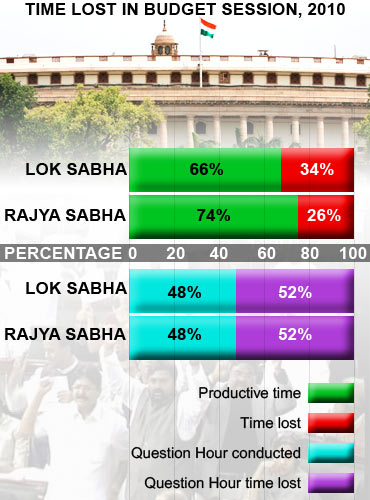
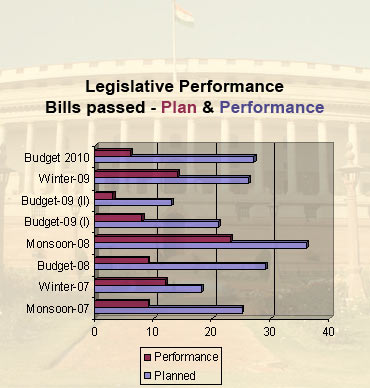
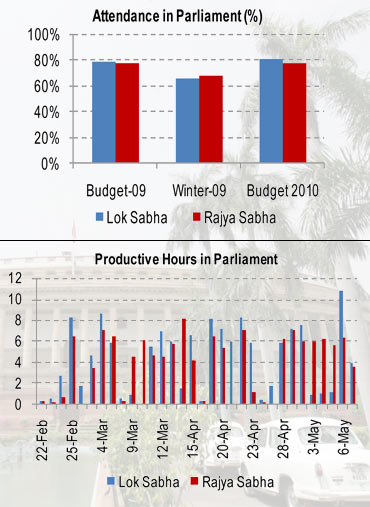
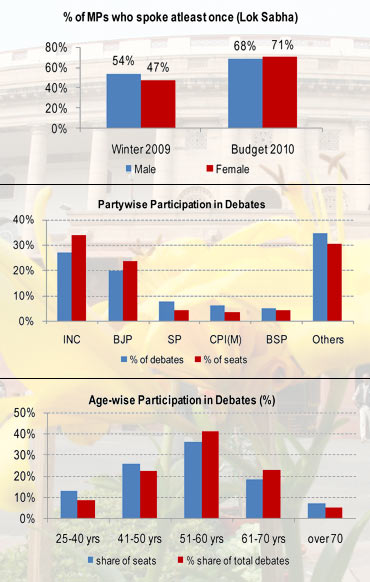
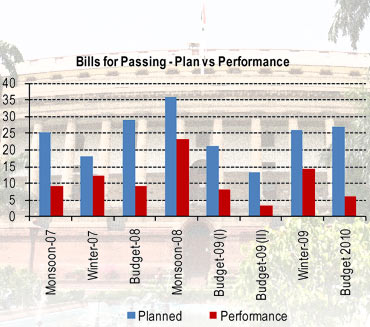
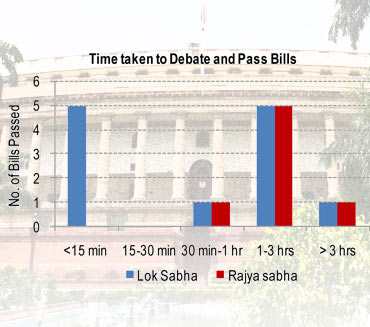
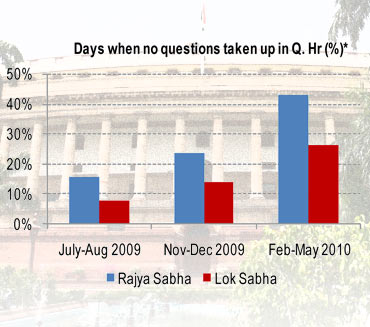
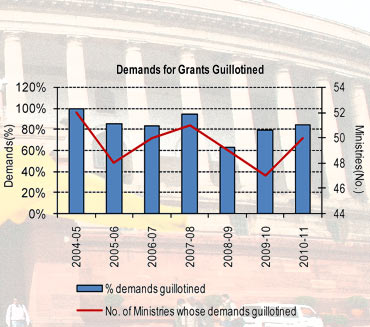
article